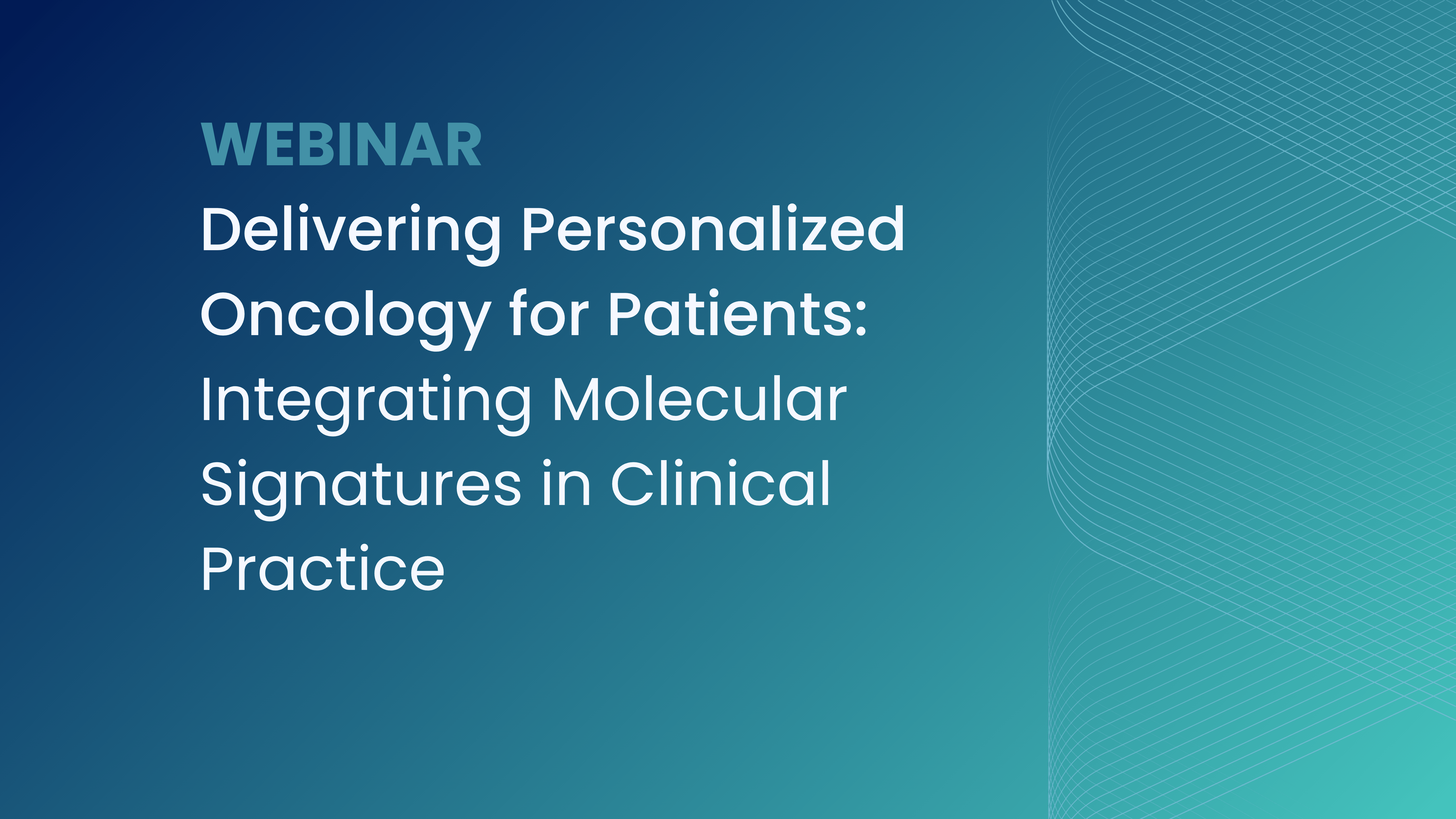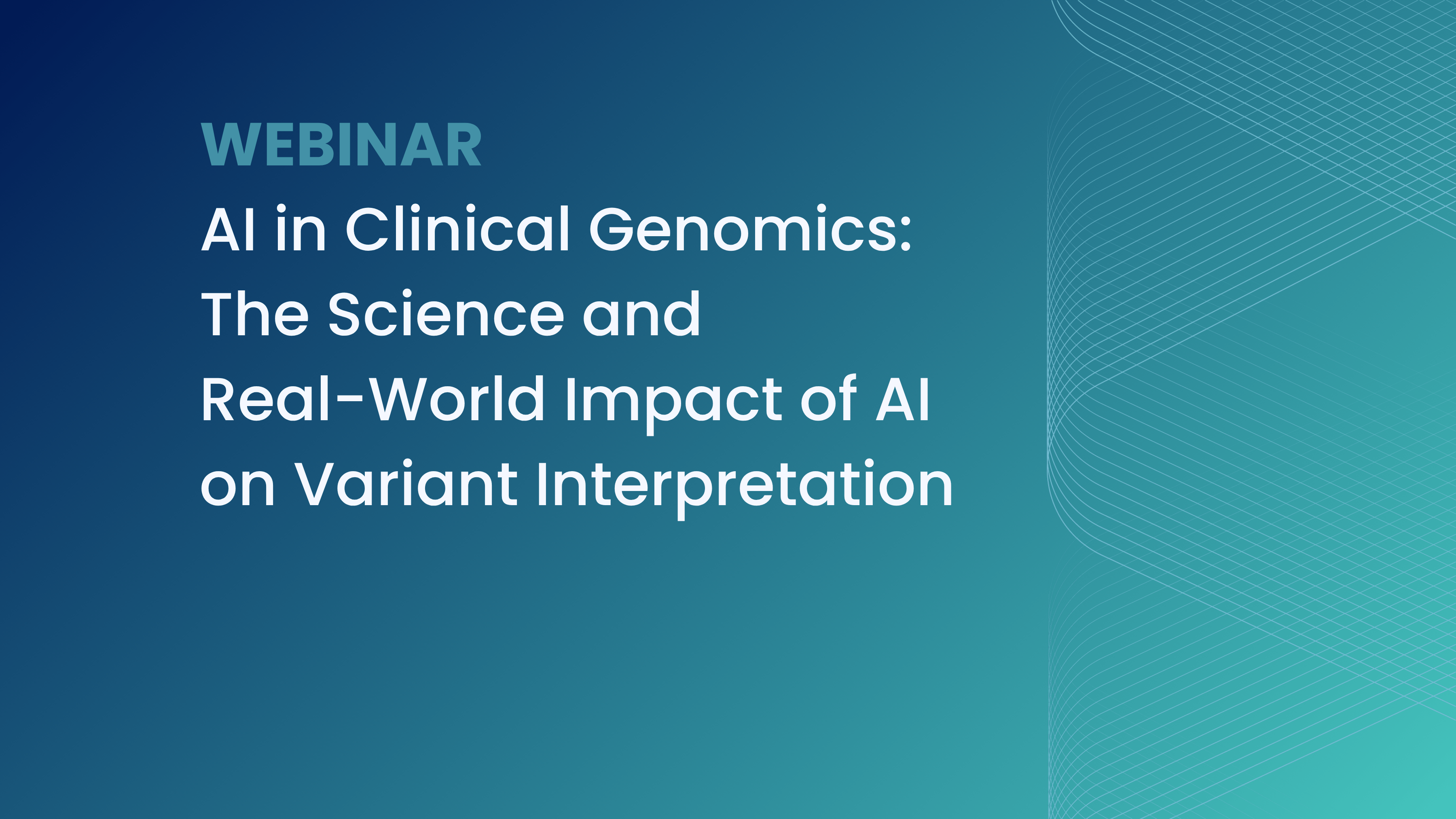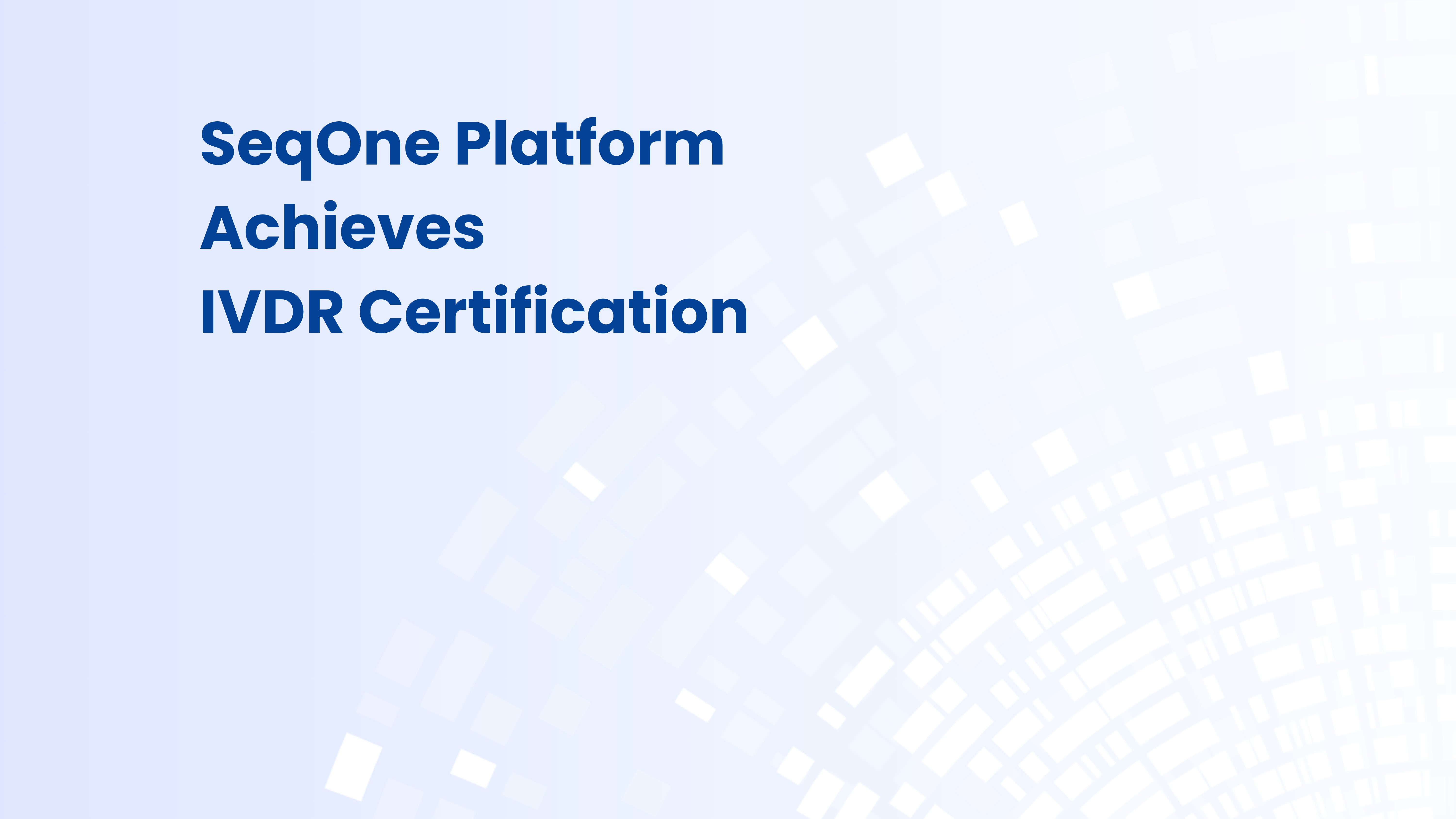Professor Anne-Sophie Lèbre is a clinical molecular geneticist at the Centre Hospitalier Universitaire de Reims (CHU de Reims – Reims University Hospital) in France, where her laboratory specializes in a wide spectrum of genetic analyses spanning rare diseases, oncogenetics, tumor genomics, and oncohematology. With extensive experience in clinical genetics, Pr. Lèbre plays a key role in advancing genetic diagnostics and research at CHU de Reims.
In the following testimonial, Pr. Lèbre shares her experience with SeqOne, highlighting how our comprehensive genomic analysis platform has enhanced their ability to deliver precise, personalized patient care in routine diagnostics and complex cases.
Can you briefly describe your laboratory’s focus in genomic analysis and which SeqOne products or services you’re currently using?
Our laboratory at CHU de Reims has been using SeqOne for genomic analysis in rare diseases since 2018, and we have progressively expanded its use to oncogenetics, tumor genomics, and oncohematology.
SeqOne assists us in identifying genetic variants responsible for constitutional diseases through whole-exome sequencing (WES) and panels. Its tools for variant annotation and classification help detect pathogenic variations, even in rare or unknown genes.
SeqOne also enables us to identify constitutional and somatic variations, copy number variations (CNVs), and structural variations (SVs), critical for understanding cancer and guiding personalized treatments. Furthermore, the platform supports analysis of gene fusions and clonal evolution in hematological cancers.
With SeqOne’s customizable panels and automated variant interpretation, we can make rapid decisions for diagnosis and treatment in these complex areas.
What were the key factors that influenced your decision to choose SeqOne for your genomic analysis needs?
The decision to choose SeqOne for genomic analysis in our hospital was driven by several factors. We initially selected SeqOne in 2018 for rare diseases as it offered advanced bioinformatics pipelines for efficient analysis of large genomic datasets, ensuring accurate detection of all kinds of genomic variations. As the platform proved its value, we progressively expanded its use to other types of genomic analysis.
The platform’s variant interpretation tools prioritize clinically significant pathogenic variations with regulatory standards for reports, which streamlines our diagnostic process. Additionally, its flexibility, scalability, and responsive customer support have made it a reliable solution for our clinical applications.
How has SeqOne’s software improved your genomic analysis workflow, particularly in identifying and interpreting clinically relevant genetic variants?
The SeqOne platform offers advanced bioinformatics pipelines with various kinds of filters that efficiently handle complex data. It allows for customizable panels, focusing on specific genes if needed.
Its variant interpretation tools empower us with access to databases including GnomAD and ClinVar, along with a personal variant knowledge base (VKB) and ACMG predictions to effectively prioritize clinically relevant pathogenic variations, streamlining our diagnostic process.
For tumor genomics, the platform provides valuable insights into key markers including microsatellite instability (MSI), homologous recombination deficiency (HRD) and tumor mutational burden (TMB), supporting personalized treatment strategies.
Can you share a specific example of a challenging case where SeqOne’s software was particularly helpful in reaching a diagnosis or treatment decision?
A challenging case involved a patient with an ovary tumor. Using panel analysis on FFPE tissue and SeqOne’s variant annotation tools, we were able to identify a rare but pathogenic constitutional variant in BRCA1 gene within minutes.
This discovery helped us pinpoint an appropriate targeted therapy. The rapid and accurate diagnosis led to personalized treatment planning, and a genetic counseling for the family.
How would you describe your experience with SeqOne’s customer support and the implementation process?
The SeqOne platform has evolved significantly since 2018. Throughout these changes, our experience with SeqOne’s customer support and the implementation process has been highly positive.
The SeqOne team provided thorough guidance during the initial setup, ensuring a smooth integration of their platform into our existing workflows. While the software is intuitive, their knowledgeable support team promptly addresses any technical questions or challenges we encounter. They have been proactive in offering training and assistance, ensuring we could maximize the platform’s capabilities, especially for complex genomic analysis.
SeqOne’s team has consistently been responsive to our feedback, regularly offering updates and improvements based on our needs.
What do you consider to be SeqOne’s key differentiators compared to other genomic analysis solutions you’ve used or evaluated?
SeqOne’s key differentiators lie in its user-friendly interface, advanced bioinformatics pipelines, and customizable panels tailored to our specific needs, particularly in oncogenetics. The platform offers automated variant interpretation with integration of the latest clinical guidelines. Its ability to generate actionable clinical reports that align with regulatory standards is also a strong feature.
SeqOne excels in analyzing complex genomic data, which is crucial for tumor genomics and oncohematology. Another key differentiator is their excellent customer support, offering training, troubleshooting, and continuous updates with communication through newsletters. These features combined make SeqOne a highly effective, flexible, and reliable solution for clinical applications.
If you were to recommend SeqOne to a colleague, what would be your main reasons for doing so?
There are several key reasons for which I would enthusiastically recommend SeqOne to a colleague. First, its advanced bioinformatics tools and customizable panels allow for precise analysis of complex genomic data, particularly in rare diseases, oncology, and oncohematology. The platform’s automated variant interpretation and actionable clinical reports streamline the process of identifying clinically relevant variations, making it easier and quicker to make informed treatment decisions.
Additionally, SeqOne provides excellent customer support, including comprehensive training and responsive assistance. The platform is also highly scalable, accommodating everything from small panel analyses to large-scale whole-exome or whole-genome sequencing with Illumina or Oxford Nanopore technologies. Overall, SeqOne’s combination of flexibility, ease of use, and clinical relevance makes it an invaluable tool for both research and clinical diagnostics.
About SeqOne
SeqOne is a leading European provider of AI-powered software for next-generation sequencing (NGS) data analysis in oncology and rare diseases. Its cloud-based platform transforms complex genomic data into fast, precise, and actionable insights, supporting molecular labs in delivering life-saving diagnoses and treatments. The SeqOne Platform is a CE-IVD Class C certified under IVDR in vitro diagnostic medical device. Driven by the vision of personalized medicine for every patient, everywhere, SeqOne is scaling the future of genomic medicine—one lab at a time.
For more information, visit seqone.com.






















